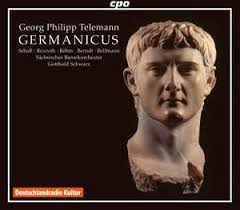DỊCH HOÀN THIỆN ĐỀ THI IELTS READING VÀ GIẢI THÍCH ĐÁP ÁN:
This Marvellous Invention
A. Of all mankind's manifold creations, language must take pride of place. Other inventions -the wheel, agriculture, sliced bread - may have transformed our material existence, but the advent of language is what made us human. Compared to language, all other inventions pale in significance, since everything we have ever achieved depends on language and originates from it. Without language, we could never have embarked on our ascent to unparalleled power over all other animals, and even over nature itself.
Trong số tất cả những sáng tạo đa dạng của nhân loại, ngôn ngữ phải chiếm vị trí đáng tự hào. Những phát minh khác - bánh xe, nông nghiệp, bánh mì cắt lát - có thể đã biến đổi sự sống vật chất của chúng ta, nhưng sự ra đời của ngôn ngữ là thứ đã biến chúng ta thành con người. So với ngôn ngữ, tất cả các phát minh khác đều mờ nhạt về ý nghĩa, vì mọi thứ chúng ta từng đạt được đều phụ thuộc vào ngôn ngữ và bắt nguồn từ nó. Nếu không có ngôn ngữ, chúng ta không bao giờ có thể bắt tay vào việc vươn tới quyền lực vô song đối với tất cả các loài động vật khác, và thậm chí đối với chính thiên nhiên.
B. But language is foremost not just because it came first. In its own right it is a tool of extraordinary sophistication, yet based on an idea of ingenious simplicity: ‘this marvellous invention of composing out of twenty-five or thirty sounds that infinite variety of expressions which, whilst having in themselves no likeness to what is in our mind, allow us to disclose to others its whole secret, and to make known to those who cannot penetrate it all that we imagine, and all the various stirrings of our soul’ This was how, in 1660, the renowned French grammarians of the Port-Royal abbey near Versailles distilled the essence of language, and no one since has celebrated more eloquently the magnitude of its achievement. Even so, there is just one flaw in all these hymns of praise, for the homage to languages unique accomplishment conceals a simple yet critical incongruity. Language is mankind's greatest invention - except, of course, that it was never invented. This apparent paradox is at the core of our fascination with language, and it holds many of its secrets.
Nhưng ngôn ngữ là quan trọng nhất không chỉ vì nó có trước. Tự nó là một công cụ phức tạp, tinh thạo khác thường, nhưng dựa trên một ý tưởng về sự đơn giản tài tình: 'sự phát minh tuyệt vời về việc tạo ra từ hai mươi lăm hoặc ba mươi âm thanh với vô số cách diễn đạt khác nhau, trong khi bản thân chúng không giống với cái gì trong suy nghĩ của chúng ta, cho phép chúng ta tiết lộ cho người khác toàn bộ bí mật của ngôn ngữ, và tiết lộ cho những người không thể hiểu thấu ngôn ngữ tất cả những gì chúng ta tưởng tượng, và tất cả những rung động khác nhau trong tâm hồn chúng ta' Đây là cách, vào năm 1660, các nhà ngữ pháp nổi tiếng người Pháp của tu viện Port-Royal gần Versailles chắt lọc tinh hoa của ngôn ngữ, và kể từ đó không ai tán dương tầm quan trọng của thành tựu này một cách hùng hồn hơn thế. Mặc dù vậy, chỉ có một thiếu sót trong tất cả những bài thánh ca ca ngợi này, vì sự kính trọng đối với thành tựu độc đáo của ngôn ngữ che giấu một sự phi lý đơn giản nhưng quan trọng. Ngôn ngữ là phát minh vĩ đại nhất của loài người - tất nhiên, ngoại trừ việc nó chưa bao giờ được phát minh. Nghịch lý rõ ràng này là cốt lõi của niềm đam mê của chúng ta với ngôn ngữ, và nghịch lý này cũng chứa đựng nhiều bí mật của ngôn ngữ.
"Make it known" -> nghĩa là làm cho phổ biến, nổi tiếng và cộng đồng biết đến
C. Language often seems so skillfully drafted that one can hardly imagine it as anything other than the perfected handiwork of a master craftsman. How else could this instrument make so much out of barely three dozen measly morsels of sound? In themselves, these configurations of mouth p, f, b, v, t, d, k, g, sh, a, e and so on - amount to nothing more than a few haphazard spits and splutters, random noises with no meaning, no ability to express, no power to explain. But run them through the cogs and wheels of the language machine, let it arrange them in some very special orders, and there is nothing that these meaningless streams of air cannot do: from signing the interminable boredom of existence to unravelling the fundamental order of the universe.
Ngôn ngữ thường có vẻ được soạn thảo khéo léo đến mức người ta khó có thể tưởng tượng nó là thứ gì khác ngoài tác phẩm thủ công hoàn hảo của một nghệ nhân bậc thầy. Làm thế nào khác mà công cụ này có thể tạo ra nhiều thứ như vậy từ chỉ ba chục mẩu âm thanh nhỏ? Bản thân chúng, những cấu hình miệng p, f, b, v, t, d, k, g, sh, a, e, v.v. - chung quy không gì khác hơn là một vài tiếng khạc nhổ và lắp bắp bừa bãi, những tiếng ồn ngẫu nhiên không có ý nghĩa, không có khả năng diễn đạt, không có năng lực giải thích. Nhưng hãy chạy chúng qua các bánh răng và bánh xe của cỗ máy ngôn ngữ, hãy để nó sắp xếp chúng theo một trật tự rất đặc biệt nào đó, và không có gì mà những luồng không khí vô nghĩa này không thể làm được: từ việc thể hiện sự nhàm chán vô tận của sự tồn tại đến việc tháo gỡ trật tự cơ bản của vũ trụ.
D. The most extraordinary thing about language, however, is that one doesn’t have to be a genius to set its wheels in motion. The language machine allows just about everybody from pre-modern foragers in the subtropical savannah, to post-modern philosophers in the suburban sprawl - to tie these meaningless sounds together into an infinite variety of subtle senses, and all apparently without the slightest exertion. Yet it is precisely this deceptive ease which makes language a victim of its own success, since in everyday life its triumphs are usually taken for granted. The wheels of language run so smoothly that one rarely bothers to stop and think about all the resourcefulness and expertise that must have gone into making it tick. Language conceals art.

1. Mua bộ đề gần 400 bài ielts reading - Dịch và giải chi tiết Chỉ 199k bao gồm toàn bộ đề trong bộ Cambridge ( từ bộ 1 -19) và nhiều đề thi thực tế ( xem danh sách 400 đề ielts reading tại đây). Xem bài mẫu tại đây, Bài mẫu 1, bài mẫu 2, bài mẫu 3. Giải đề bao gồm phần dịch bài đọc, dịch phần câu hỏi, giải thích chi tiết, ( chỉ có thể tải, in phần đề để luyện tập, phần giải chi tiết và dịch chỉ xem online).
>>>>>>> Đặc biệt tặng kèm Dịch và giải chi tiết bộ đề Ielts listening từ Cam 10-18 và tặng kèm hơn 300 đề Ielts thực tế ( không có lời giải chi tiết chỉ có đề và đáp án) ( khác với bộ 400 đề ở trên). Vui lòng điền thông tin theo form tại đây và thanh toán theo thông tin CK trong form.
2. Đặc biệt dành tặng 100 bạn hoàn thành buổi học thử miễn phí khóa học Ielts Speaking online 1 kèm 1, các bạn sẽ được tặng bộ đề 400k bài Ielts reading và bộ đề Ielts Listening bộ Cam từ 10-18 gồm bài dịch và giải chi tiết, giải thích từ vựng khó ( thời hạn sử dụng trong vòng 2 tháng). Xem thông tin khóa học Ielts Speaking online 1 kèm 1 và đăng ký học thử tại đây.
E. Often, it is only the estrangement of foreign tongues, with their many exotic and outlandish features, that brings home the wonder of languages design. One of the showiest stunts that some languages can pull off is an ability to build up words of breath-breaking length, and thus express in one word what English takes a whole sentence to say. The Turkish word çehirliliçtiremediklerimizdensiniz, to take one example, means nothing less than ‘you are one of those whom we can’t turn into a town-dweller’. (In case you were wondering, this monstrosity really is one word, not merely many different words squashed together - most of its components cannot even stand up on their own.)
F. And if that sounds like some one-off freak, then consider Sumerian, the language spoken on the banks of the Euphrates some 5,000 years ago by the people who invented writing and thus enabled the documentation of history. A Sumerian word like munintuma'a (‘when he had made it suitable for her’) might seem rather trim compared to the Turkish colossus above. What is so impressive about it, however, is not its lengthiness but rather the reverse - the thrifty compactness of its construction. The word is made up of different slots, each corresponding to a particular portion of meaning. This sleek design allows single sounds to convey useful information, and in fact, even the absence of a sound has been enlisted to express something specific. If you were to ask which bit in the Sumerian word corresponds to the pronoun ‘it’ in the English translation ‘when he had made it suitable for her’, then the answer would have to be nothing. Mind you, a very particular kind of nothing: the nothing that stands in the empty slot in the middle. The technology is so fine-tuned then that even a non-sound, when carefully placed in a particular position, has been invested with a specific function. Who could possibly have come up with such a nifty contraption?
>>>>> Xem thêm:
♦ Tổng hợp câu trả lời, câu hỏi, từ vựng của hơn 70 chủ đề Ielts Speaking part 1
♦ Tổng hợp gần 400 đề thi Ielts reading ( bao gồm dịch, giải chi tiết, từ vựng)
Questions 27-32
Reading Passage 202 has six paragraphs, A-F.
Choose the correct heading for paragraphs A-F from the list of headings below.
Write the correct number, i-vii, in boxes 21-32 on your answer sheet.
List of Headings
i. Differences between languages highlight their impressiveness
ii. The way in which a few sounds are organised to convey a huge range of meaning
iii. Why the sounds used in different languages are not identical
iv. Apparently incompatible characteristics of language
v. Even silence can be meaningful
vi. Why language is the most important invention of all
vii. The universal ability to use language
27. Paragraph A
28. Paragraph B
29. Paragraph C
30. Paragraph D
31. Paragraph E
32. Paragraph F
Questions 33-36
Complete the summary using the list of words, A-G, below.
Write the correct letter, A-G, in boxes 33-36 on your answer sheet.
The importance of language
The wheel is one invention that has had a major impact on 33 .................... aspects of life, but no impact has been as 34 .................... as that of language. Language is very 35 .................... , yet composed of just a small number of sounds.
Language appears to be 36 .................... to use. However, its sophistication is often overlooked.
A difficult
B complex
C original
D admired
E material
F easy
G fundamental
Questions 37-40
Do the following statements agree with the views of the writer in Reading Passage 202?
In boxes 37-40 on your answer sheet, write
YES if the statement agrees with the views of the writer
NO if the statement contradicts the views of the writer
NOT GIVEN if it is impossible to say what the writer thinks about this
37. Human beings might have achieved their present position without language.
38. The Port-Royal grammarians did justice to the nature of language.
39. A complex idea can be explained more clearly in a sentence than in a single word.
40. The Sumerians were responsible for starting the recording of events.
ĐÁP ÁN, GIẢI CHI TIẾT và DỊCH HOÀN THIỆN ĐỀ THI IELTS READING:
This Marvellous Invention
Questions 27-32
Reading Passage 202 has six paragraphs, A-F.
Choose the correct heading for paragraphs A-F from the list of headings below.
Write the correct number, i-vii, in boxes 21-32 on your answer sheet.
27. Paragraph A/vi. Why language is the most important invention of all
Giải thích:
Other inventions -the wheel, agriculture, sliced bread - may have transformed our material existence, but the advent of language is what made us human. Compared to language, all other inventions pale in significance, since everything we have ever achieved depends on language and originates from it. Without language, we could never have embarked on our ascent to unparalleled power over all other animals, and even over nature itself.
28. Paragraph B/iv. Apparently incompatible characteristics of language
Giải thích:
In its own right it is a tool of extraordinary sophistication, yet based on an idea of ingenious simplicity.
Even so, there is just one flaw in all these hymns of praise, for the homage to languages unique accomplishment conceals a simple yet critical incongruity. Language is mankind s greatest invention - except, of course, that it was never invented. This apparent paradox is at the core of our fascination with language, and it holds many of its secrets.
Questions 33-36
Complete the summary using the list of words, A-G, below.
Write the correct letter, A-G, in boxes 33-36 on your answer sheet.
The importance of language
The wheel is one invention that has had a major impact on 33 ........E material............ aspects of life, but no impact has been as 34 .....G fundamental............... as that of language.
Bánh xe là một phát minh có tác động lớn đến các khía cạnh vật chất của cuộc sống, nhưng không có tác động nào cơ bản như ngôn ngữ.
Giải thích: đoạn A
Of all mankinds manifold creations, language must take pride of place. Other inventions -the wheel, agriculture, sliced bread - may have transformed our material existence, but the advent of language is what made us human.
Compared to language, all other inventions pale in significance, since everything we have ever achieved depends on language and originates from it ( = funfamental).
...................................................................................................................................................................................................................................................
Questions 37-40
Do the following statements agree with the views of the writer in Reading Passage 202?
In boxes 37-40 on your answer sheet, write
YES if the statement agrees with the views of the writer
NO if the statement contradicts the views of the writer
NOT GIVEN if it is impossible to say what the writer thinks about this
37.N Human beings might have achieved their present position without language.
Con người có thể đã đạt được vị trí hiện tại mà không cần ngôn ngữ.
Giải thích: đoạn A
Without language, we could never have embarked on our ascent to unparalleled power over all other animals, and even over nature itself.
38.Y The Port-Royal grammarians did justice to the nature of language.
Các nhà ngữ pháp Port-Royal đã mô tả bản chất của ngôn ngữ.
*** 'Do justice to' nghĩa là miêu tả, cho thấy ai/điều gì một cách chính xác.
Giải thích: đoạn B
‘this marvellous invention of composing out of twenty-five or thirty sounds that infinite variety of expressions which, whilst having in themselves no likeness to what is in our mind, allow us to disclose to others its whole secret, and to make known to those who cannot penetrate it all that we imagine, and all the various stirrings of our soul’ This was how, in 1660, the renowned French grammarians of the Port-Royal abbey near Versailles distilled the essence of language, and no one since has celebrated more eloquently the magnitude of its achievement.
Answer:
27. vi
28. iv
29. ii
30. vii
31. i
32. v
33. E
34. G
35. B
36. F
37. NO
38. YES
39. NOT GIVEN
40. YES
1. Mua bộ đề gần 400 bài ielts reading - Dịch và giải chi tiết Chỉ 199k bao gồm toàn bộ đề trong bộ Cambridge ( từ bộ 1 -19) và nhiều đề thi thực tế ( xem danh sách 400 đề ielts reading tại đây). Xem bài mẫu tại đây, Bài mẫu 1, bài mẫu 2, bài mẫu 3. Giải đề bao gồm phần dịch bài đọc, dịch phần câu hỏi, giải thích chi tiết, ( chỉ có thể tải, in phần đề để luyện tập, phần giải chi tiết và dịch chỉ xem online).
>>>>>>> Đặc biệt tặng kèm Dịch và giải chi tiết bộ đề Ielts listening từ Cam 10-18 và tặng kèm hơn 300 đề Ielts thực tế ( không có lời giải chi tiết chỉ có đề và đáp án) ( khác với bộ 400 đề ở trên). Vui lòng điền thông tin theo form tại đây và thanh toán theo thông tin CK trong form.
2. Đặc biệt dành tặng 100 bạn hoàn thành buổi học thử miễn phí khóa học Ielts Speaking online 1 kèm 1, các bạn sẽ được tặng bộ đề 400k bài Ielts reading và bộ đề Ielts Listening bộ Cam từ 10-18 gồm bài dịch và giải chi tiết, giải thích từ vựng khó ( thời hạn sử dụng trong vòng 2 tháng). Xem thông tin khóa học Ielts Speaking online 1 kèm 1 và đăng ký học thử tại đây.

.png)

.jpg)




